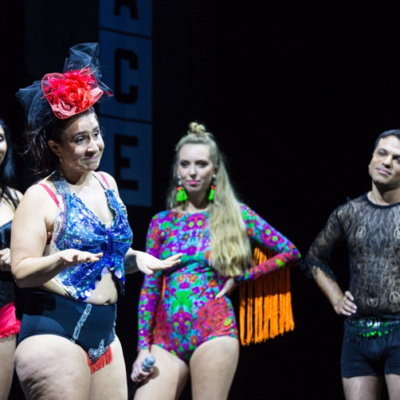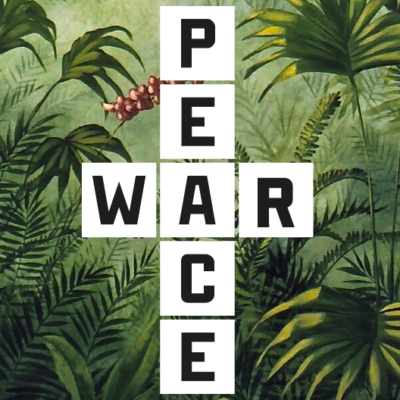South-African activist Tebogo Suiping reaped an enthusiastic applause at the festival’s closing ceremony, as she thanked the German government for not running away from the topic, but instead, using the anniversary of the end of the great war to provide a platform for discussing how to prevent it from ever happening again; then reminded us of Chimamanda Adichie Ngozi’s words about the danger of a “single story”. Finally, she called for self-initiative and saving oneself instead of waiting for the next Nelson Mandela.
Young activists from South Africa: Activate and Civil Societydid not run away. They travelled to Berlin to offer their story and to fight the danger of a single story, and perhaps most importantly, to ask what we can do to pursue peace not only today but also tomorrow.
The Hidden Story of Africa during the Great War
The South African activists, who normally organise the workshop History vs. Future– Threading a Fabric of Peace for Southern Africa and the World in their home country, brought the project to this years’ #warorpeace Festival in Berlin. Activist and workshop leader, Bongiwe Ndlovu, says that at first, the group was worried about how their stories will be relevant in the European context and how to communicate them.
The participants, however, discovered that “in sharing our stories we opened up patterns for them to share theirs, and that is where the humanity came in because my suffering is same as your suffering – it is the same as another person’s suffering. In sharing these stories, we saw that regardless of race or whatsoever – violence is still violence, crime is still crime, war is still war.” Hundred years after the great war, however, the dominant narrative around it remains Euro-centric. Bongiwe points out that only two countries from the whole African continent weren’t involved in the war. Yet, the story remained largely untold and unheard. The South African team came to Berlin to share their hidden story.
Peace today
The workshop didn’t rest in the past. Bongiwe stressed that they “discussed peace – what does it mean today, is it something that is still relevant today or is peace just some sort of fluff idea?”
“Many people were saying that conflict is something that is necessary; but peace is always a choice than we can make. In the workshop, we made commitments of what am I going to do, even outside the festival, in my daily life to champion the idea of peace. We shouldn’t turn to politicians for solutions but rather rely on our own strengths.”
At the end of the workshop, the group created a form of a fabric with a sign “Ubuntu”. Bongiwe explained that “Ubuntu means humanity in Zulu, and by that we are expressing that we might come from different countries, but our humanity is what we all have in common. And how can we work together to remember what that is and try to remember our similarities over our differences.”
The fabric, as exhibited as part of the show, was covered with participants’ personal commitments, that read argue lessand speak out against racism. After three days of sharing personal stories, the many young activists from South Africa leave Berlin having stolen the audience’s hearts and having left an impact with their inspiring message of self-empowerment.




